What do you do when you want to keep the mechanics of a game you love alive? If you're developer Yair Morgenstern, you remake it yourself like they did with UnCiv.
A remake of Civilization V, although it looks nothing alike as it's gone for a much more retro pixel-art like style it's supposed to follow the same game mechanics. Much like the classic Freeciv which is based on earlier rules and features.
Available for both Android and PC, you can clearly see with it needing a few adjustments to look good on PC. Only in the last few months has the developer actually started bundling PC release files with it, so hopefully if it becomes a bit more popular and/or pulls in some help, it can get an improved flow for PC players. Playable though and always fun to see more open source strategy games appear.
They do have a lot of plans for the project including user interface improvements, city-state quests, adding in missing civilizations, religion, trade routes and so on.
You can find it on GitHub.
Hat tip to RTheren.
Quoting: PatolaI am curious. What is so special about Civilization V mechanics (compared to other versions) that is so worth mimicking? Tried to find that on the project page but couldn't.Caveat: I haven't played anything other than Civ 5 and 6. I'm suspecting that the reasons is equally stupid - for a generation of players, this was the most accessible, widespread strategy game. Many people got introduced to strategy games as a whole through this. Several of my friends who had practically never played any games before were able to try this. It is a different topic whether an earlier version of Civ could conceivably have played a similar role. But I think UX and accessibility (as well as visual appeal) played a significant part in its massive popularity.
EDIT: So for cloning - not the mechanics themselves, but accessibility and nostalgia, I guess.
Last edited by chr on 7 Jan 2020 at 2:59 pm UTC
They introduced waaaay too many micromanagement features in the later releases. For starters, I absolutely hate having to build my nation around randomly distributed resources and managing city districts. Yes, I get the idea it's realistic, but sometimes simpler is better.
Quoting: KimyrielleI will get burnt at the stake for saying this, but having played every single Civ game there ever was, the one with the best overall features and mechanics was Call to Power II (which isn't even an official part of the franchise). IMHO of course.I agree with you, there has been too much micromanagement inside too many systems. There is also too much specialization needed to get anything out of those systems in my opinion. But I think this applies mostly to Civ 4 & 5. You could either micromanage hordes of workers, or you automate them, letting them do all the stupid things you never would have done yourself.
They introduced waaaay too many micromanagement features in the later releases. For starters, I absolutely hate having to build my nation around randomly distributed resources and managing city districts. Yes, I get the idea it's realistic, but sometimes simpler is better.
Civ 6 is a much cleaner approach imho. You have to micromanage far less and with more significance. The civics system is transparent and easy to grasp, and the two tech trees for cultural and technological advances make complete sense to me too. I regard Civ 6 as the best Civ since Civ 2 (or Test of Time, which was Civ2 with network support).
Call to Power was a nice approach, but especially CtP2 was a complete code mess. They never got stable network gaming running..
Last edited by Nevertheless on 7 Jan 2020 at 7:10 pm UTC
The insane micro of Civ games comes from two primary sources: units and cities. Governments are usually not micro intensive (except in Civ 6 with the policy cards, which can add quite a bit if you try to play efficiently).
Both of those primary sources have micro stemming from quantity and complexity. Civ 1,2 and AC were well known for ICS -- Infinite City Spam/Sprawl (also called Smallpox in Civ2), where you tried to paste as many cities (even bad cities) to on your land as possible. With so many cities, managing them all added quite a bit of micro. Fortunately, the city management, as well as tile improvements, were braindead simple. You could easily queue the same buildings and some other games like Master of Orion 2 had even custom build-order-queues you could set for each colony. The complexity of city-management slowly increased as many buildings were made useful in certain occasions and a variety of tile-improvements also increased. So Civ 5 came with the idea to reduce the number of cities (and units) and make their management more important or rather to move to empire management instead of city management. This was done by introducing global happiness, and later capped local happiness (so that you cannot spam infinite cities just by building some happiness buildings), and by introducing one-unit-per-tile. Fortunately, city management was still relatively simple.
Civ 6 abandoned this and instead went to making city management more important, introducing districts, more tile improvements, builders that have chargers instead of workers, while spamming cities was yet again of primary importance. Which means not only that you have more micro than in Civ 5 just due to the amount of cities, but the new mechanics like districts, builders and policy cards constantly bombards you with these tiny decisions that are nontheless important. This is not helped by the scaling cost of all these things (workers, settlers, districts and who knows what else). Add to that disasters, which might be interesting, but in the end are just random events that force you to do more work.
Sure, Civ 6 might have some neat features, especially with the latest expansion. But claiming that Civ 4 and Civ 5 had insane micromanagement because of the horde of workers, while Civ 6 is somehow cleaner in this regard doesn't make any sense at all.
Last edited by Colombo on 7 Jan 2020 at 7:52 pm UTC
I started playign the Civ series propely ( i had tried Call to power and Civ 3 before but in the same way a dog tries a lemon) with Civ 4. The mechanics were different but i did not like that cities had to constantly havve units stationed in them or they get razed by a pack of barbarians.
I played Civ 5 the most with a buddy (before my Linux days) and we had great fun with it. Took forever to beat a game but we just enjoyed ourselves.
This game looks interesting to me so hope it comes along nicely :)
On the other hand, I've colloquially heard of at least a few people who got into Civilization with either Civ 2 or Civ 4, who didn't like Civ 3 or 5, and like Civ 6, so I'd really like to hear other people's thoughts on this. Is this just small sample size bias, or is there actually a measurable trend here?
Quoting: PatolaI am curious. What is so special about Civilization V mechanics (compared to other versions) that is so worth mimicking? Tried to find that on the project page but couldn't.I mean, you could ask that about any entry in the series they happened to pick, no? I guess it's just this guy's personal favorite. But some thoughts of my own:
- Civ 5 introduced hexagonal tiles (which can allow for somewhat more natural looking landscapes) and city states to the main games (I'm admittedly ignorant of any spin-off games).
- The build-your-own-religion system in Gods & Kings was new, and interesting, where all the options are not balanced in power because it's first-come, first-serve. Want a powerful religion customized to you liking? Need to get working on it early.
- The culture victory from Brave New World. I've already touched on this, but I think this is the most interesting and interactive (non-military) victory condition I've encountered in a Civ game to date (with the caveat that I haven't personally played 1, 2, or 6). It's incredibly well balanced over the entire course of a game so that you always end up winning right near the end of the tech tree, but you always feel like you're making progress towards it along the way (at least once you get your first Great Work). And there's just something about making five different Great Work trades to get that extra +2 from your new Museum of Classical Greek Art that's just so satisfying!
- I also really like the trade route system of BNW, it did a good job of having a number of trade routes that was small enough to manage, but important enough to care about, especially with how it synergized with the culture victory (having a trade route with a civilization would increase your rate of cultural superiority with them, for instance).
Now, having written all that, I looked at the project page and realized they don't have mechanics from G&K and BNW in place yet (though they seem to be on the road map), but those are a big part of why I, personally, like Civ 5 so much. :D
(This isn't in the list above because it's not mechanics-related, but as a linguaphile I really liked the attention to detail in the leaders in Civ 5 and how they all speak the correct language [as close as we can determine].)
Quoting: PhiladelphusI've got an interesting theory (feel free to chime in with support or rebuttal) that people tend to like either even- or odd- numbered entries in the Civilization series better depending on whether they first played an even- or odd-numbered game themselves. I, for instance, was introduced to Civilization with Civ 3, which devoured hundreds of hours of my teenage life. I really tried to get into Civ 4, but bounced off it pretty hard (the removal of nearly all ranged units, which was one of my favorites aspects of warfare, certainly didn't help). I found Civ 5 to be a little dry at release, but over the years with the release of Gods & Kings and Brave New World I've found it to be my favorite game so far—I'd go so far as to say that the culture victory from Brave New World is possibly my favorite victory condition in a game ever. (There's just something about optimizing my collection of artifacts and Great Works over the years to squeeze out another +1 Tourism that's immensely satisfying to me!) I haven't played Civ 6 because, well, its mechanics just haven't really appealed to me enough from watching gameplay videos to pick it up. (Subjectively, I also prefer 5's more realistic art style for leaders over 6's more cartoony style.)Sorry to dispel your odd-even theory.
On the other hand, I've colloquially heard of at least a few people who got into Civilization with either Civ 2 or Civ 4, who didn't like Civ 3 or 5, and like Civ 6, so I'd really like to hear other people's thoughts on this. Is this just small sample size bias, or is there actually a measurable trend here?
Quoting: PatolaI am curious. What is so special about Civilization V mechanics (compared to other versions) that is so worth mimicking? Tried to find that on the project page but couldn't.I mean, you could ask that about any entry in the series they happened to pick, no? I guess it's just this guy's personal favorite. But some thoughts of my own:
- Civ 5 introduced hexagonal tiles (which can allow for somewhat more natural looking landscapes) and city states to the main games (I'm admittedly ignorant of any spin-off games).
- The build-your-own-religion system in Gods & Kings was new, and interesting, where all the options are not balanced in power because it's first-come, first-serve. Want a powerful religion customized to you liking? Need to get working on it early.
- The culture victory from Brave New World. I've already touched on this, but I think this is the most interesting and interactive (non-military) victory condition I've encountered in a Civ game to date (with the caveat that I haven't personally played 1, 2, or 6). It's incredibly well balanced over the entire course of a game so that you always end up winning right near the end of the tech tree, but you always feel like you're making progress towards it along the way (at least once you get your first Great Work). And there's just something about making five different Great Work trades to get that extra +2 from your new Museum of Classical Greek Art that's just so satisfying!
- I also really like the trade route system of BNW, it did a good job of having a number of trade routes that was small enough to manage, but important enough to care about, especially with how it synergized with the culture victory (having a trade route with a civilization would increase your rate of cultural superiority with them, for instance).
Now, having written all that, I looked at the project page and realized they don't have mechanics from G&K and BNW in place yet (though they seem to be on the road map), but those are a big part of why I, personally, like Civ 5 so much. :D
(This isn't in the list above because it's not mechanics-related, but as a linguaphile I really liked the attention to detail in the leaders in Civ 5 and how they all speak the correct language [as close as we can determine].)
I like 4 and 5 the best.
Tried 3 and 6 as well.
5 remains my favorite.
Quoting: razing32Sorry to dispel your odd-even theory.Ha ha, fair enough! :D
I like 4 and 5 the best.
Tried 3 and 6 as well.
5 remains my favorite.
Quoting: NeverthelessCall to Power was a nice approach, but especially CtP2 was a complete code mess. They never got stable network gaming running..Haha, I remember me having looked at the code. It's a really a mess. Don't ask me how that game even managed to run halfway stable. Never tried the multiplayer mode, though. Tbh, I think Civ is not a great game for multiplayer.
To be honest, what I would love to see is CtP2's core systems paired with Civ 5's hex map. CtP2 pretty much solved Civ combat, otherwise.
Quoting: ColomboNevertheless: What kind of bull is that? Civ 6 has far more micromanagement and overwhelms you with all these tiny choices that neither previous civ had.I really never counted mouseclicks for micromanagement in any Civ I played. I also did not define where exactly the difference between management and micro management is. I only kbow that I find Unit movement and work order wise I find Civ6 far less annoying than Civ5. There are far less workers to move, nagging for orders and to secure from enemies. Streets are built automatically by trade routes, military units can be stacked as corps and armies later on.
The insane micro of Civ games comes from two primary sources: units and cities. Governments are usually not micro intensive (except in Civ 6 with the policy cards, which can add quite a bit if you try to play efficiently).
Both of those primary sources have micro stemming from quantity and complexity. Civ 1,2 and AC were well known for ICS -- Infinite City Spam/Sprawl (also called Smallpox in Civ2), where you tried to paste as many cities (even bad cities) to on your land as possible. With so many cities, managing them all added quite a bit of micro. Fortunately, the city management, as well as tile improvements, were braindead simple. You could easily queue the same buildings and some other games like Master of Orion 2 had even custom build-order-queues you could set for each colony. The complexity of city-management slowly increased as many buildings were made useful in certain occasions and a variety of tile-improvements also increased. So Civ 5 came with the idea to reduce the number of cities (and units) and make their management more important or rather to move to empire management instead of city management. This was done by introducing global happiness, and later capped local happiness (so that you cannot spam infinite cities just by building some happiness buildings), and by introducing one-unit-per-tile. Fortunately, city management was still relatively simple.
Civ 6 abandoned this and instead went to making city management more important, introducing districts, more tile improvements, builders that have chargers instead of workers, while spamming cities was yet again of primary importance. Which means not only that you have more micro than in Civ 5 just due to the amount of cities, but the new mechanics like districts, builders and policy cards constantly bombards you with these tiny decisions that are nontheless important. This is not helped by the scaling cost of all these things (workers, settlers, districts and who knows what else). Add to that disasters, which might be interesting, but in the end are just random events that force you to do more work.
Sure, Civ 6 might have some neat features, especially with the latest expansion. But claiming that Civ 4 and Civ 5 had insane micromanagement because of the horde of workers, while Civ 6 is somehow cleaner in this regard doesn't make any sense at all.
Of course the number of cities influences the amount of decisions you have to make (also influenced by the map size), and of course you don't just have to tell what is built into a city, but sometimes (for districts and wonders) you also have to decide where they shall be built, but I find these decisions rather interesting than annoying.
I would like it if they'd highlight new policy cards for a better overview, but I like it to be able to fine tune the direction I want my civ to go.
I like Civ V too, I just find Civ6 more "managable", even if (should I count) I found out, I had to click my mouse even some more to play it.
Quoting: KimyrielleI played Civ as a network game since Civ-Net, the Win 3.11 network variant of Civ1. Always loved it. :)Quoting: NeverthelessCall to Power was a nice approach, but especially CtP2 was a complete code mess. They never got stable network gaming running..Haha, I remember me having looked at the code. It's a really a mess. Don't ask me how that game even managed to run halfway stable. Never tried the multiplayer mode, though. Tbh, I think Civ is not a great game for multiplayer.
To be honest, what I would love to see is CtP2's core systems paired with Civ 5's hex map. CtP2 pretty much solved Civ combat, otherwise.
Whatever, it's always nice to see a fan's take on a big series. I saw it on google play store a few times and considered it with my recent strategy game binge. Also, it's nice to have another STRATEGY game without microtransactions on Android.
Quoting: NeverthelessI really never counted mouseclicks for micromanagement in any Civ I played. I also did not define where exactly the difference between management and micro management is. I only kbow that I find Unit movement and work order wise I find Civ6 far less annoying than Civ5. There are far less workers to move, nagging for orders and to secure from enemies. Streets are built automatically by trade routes, military units can be stacked as corps and armies later on.Mouseclicks is essentially how you are doing any actions in a typical strategy game (unless you are using keybinding for everything). In AoE, you can send your lumberjacks to cut wood by selecting them all by click and drag and sending them to tree. And you can also micromanage every single lumberjack by sending them to the nearest tree, correct side of tree and so on... with a littre extra gain, but a huge amount of clicks. So any micromanagement will always boil down to increase in the number of clicks, time and decisionpower.
Of course the number of cities influences the amount of decisions you have to make (also influenced by the map size), and of course you don't just have to tell what is built into a city, but sometimes (for districts and wonders) you also have to decide where they shall be built, but I find these decisions rather interesting than annoying.
I would like it if they'd highlight new policy cards for a better overview, but I like it to be able to fine tune the direction I want my civ to go.
I like Civ V too, I just find Civ6 more "managable", even if (should I count) I found out, I had to click my mouse even some more to play it.
Regarding builders, thats not true. If you assume that each worker will build more than 3-5 improvements (it will), you will always have less workers over time than builders. I thought that the mechanics of builders is nice, especially with the like of China or Aztecs that could build wonders or districts by spending chargers. But I started to hate it in practice.
Same with districts. It sounded like a good idea, but the sheer amount of different bonuses means that trying to play it somewheat efficiently is incredibly demanding and building districts (especially with their ever increasing cost) is ever present and annoying decision. And thats basically the most important and interesting thing on districts, they don't serve any other purpose (except the military one)! I think they could have been done much better and more interesting, especially from long-term perspective (once you place them, there isn't much more interaction with them).
Civ 6 have some nice mechanics and some nice ideas, but a lot of it is done in a quite annoying way. Not that Civ 5 didn't have annoying mechanics (such as the nonexisting UI showing you local happiness, inability to claim land in any other way than to put city on it, but a strict penalty for taking cities).
Have by now played quite a bit of Civ 5. On one hand, it introduces tons of new stuff, much of it quite interesting. I like playing with the cultural stuff and the religious stuff and whatnot. And hex grid makes more sense than squares. On the other, I like my 4X games with expansion. The efforts in games to penalize growth, a fashion Civ 5 seems to have set, tend to leave me cold and feel weirdly artificial. They have a similar thing in Civ: Beyond Earth, and some other 4X games have introduced ideas along those lines--Stellaris for instance. It doesn't bother me enough to make me not like these games, but it niggles.
The funny thing is that I do agree that in real life there are, or at least have historically been, limits to the effective growth of empires--but none of the game mechanics I've seen trying to create such limits feel to me much like the kinds of things that create those limits in real life, they feel totally different and rather arbitrary. And I like the expansion phase of these games, so if it isn't going to get me much of a realism bonus I'd rather limits to growth get out of my way.
I find the movement issues in Civ 5 around no unit stacking kind of annoying too. But it's still a great game overall.
And I've played Civ 6 just a little bit so far. Districts are interesting but I can see getting sick of them once I get used to them. Seems like they've shelved the Civ 5 growth penalties, but the world seems so small it doesn't matter much. The civic card things seem nice but somehow not quite as nice as I thought they'd be when I saw video about them. And I find it annoying having to make a builder again every three seconds because it self-destructs, but I guess at least they don't have to build roads.
My favourite Civ-type game was almost certainly Alpha Centauri. For lots of little reasons, but the biggest probably the government system.
Of course given the state of FreeCiv, I suppose it can't hurt to get some lead time; clearly it takes quite a while to get these things usable.
Last edited by Purple Library Guy on 8 Jan 2020 at 7:45 am UTC
Quoting: PhiladelphusI started with civ 3 and like 3 and 6 the best, not so much 4 and 5.Quoting: razing32Sorry to dispel your odd-even theory.Ha ha, fair enough! :D
I like 4 and 5 the best.
Tried 3 and 6 as well.
5 remains my favorite.
I guess the perfect civ game is unreachable, must be tough for aspyr xD.
Quoting: PatolaI am curious. What is so special about Civilization V mechanics (compared to other versions) that is so worth mimicking? Tried to find that on the project page but couldn't.They took out a number of gameplay elements in civ 6 and oversimplified the military aspects small and big changes really. In civ 5 you can create and stack an army in civ 6 you can't
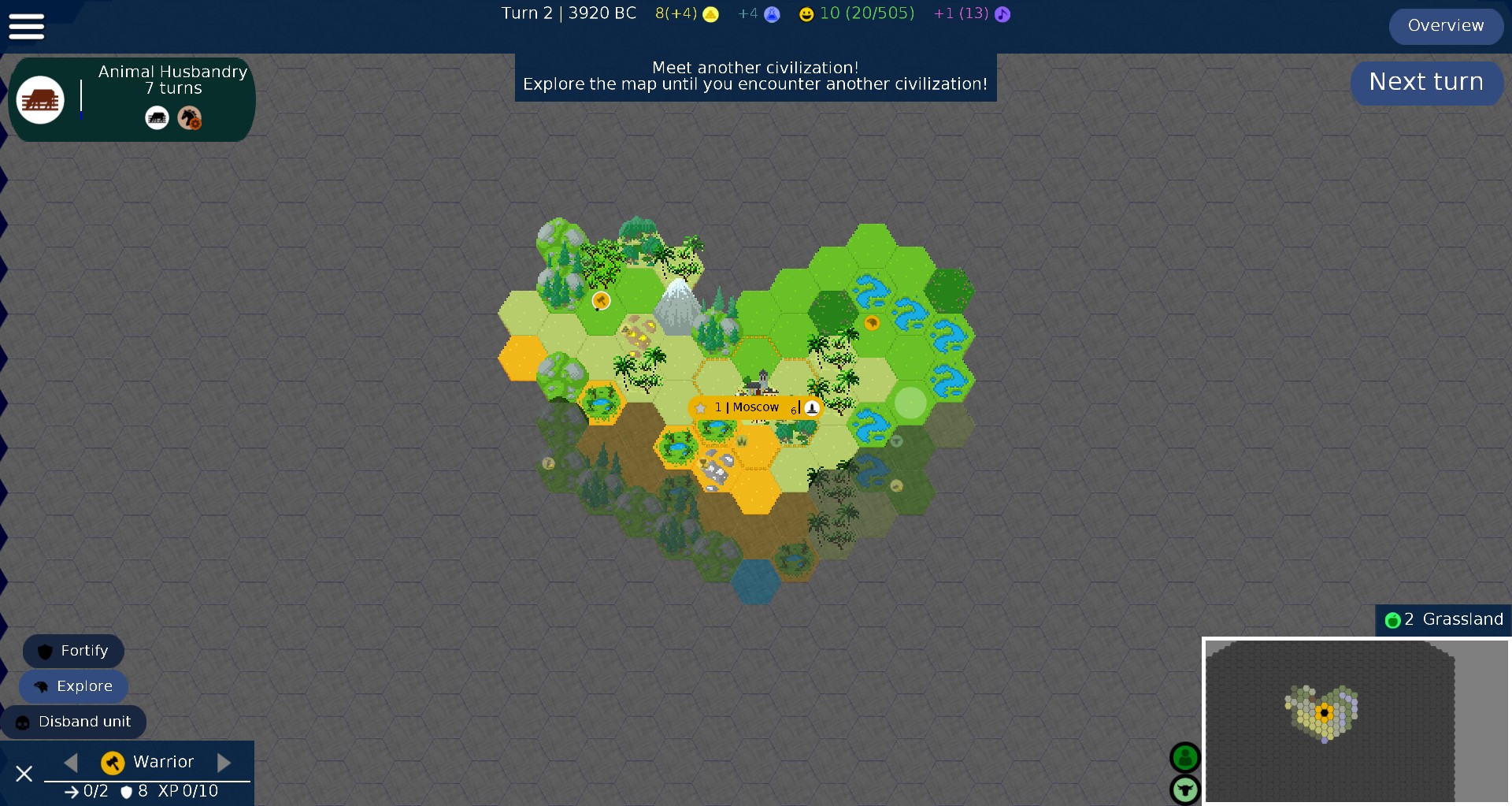
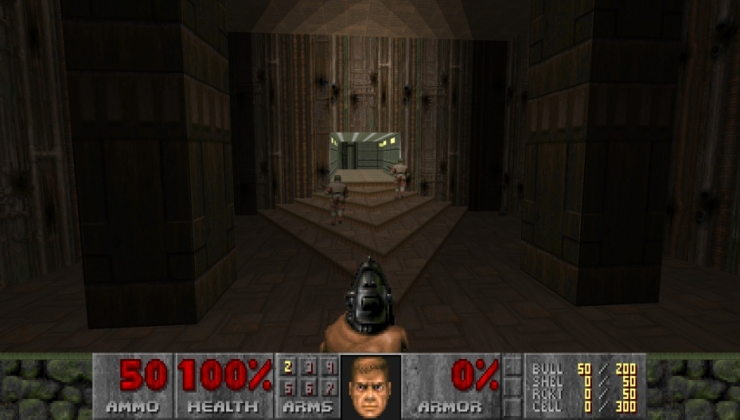
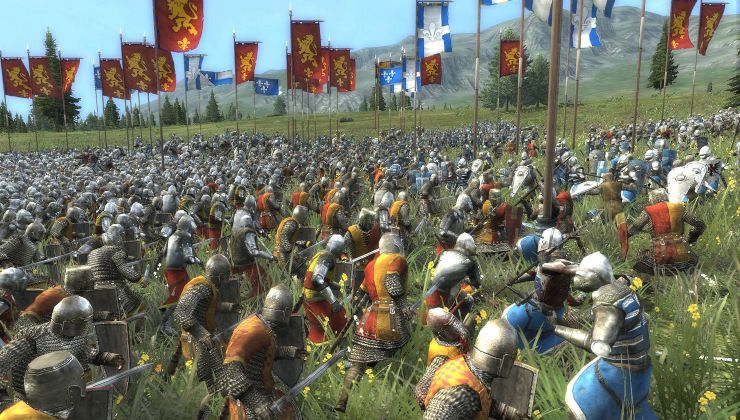
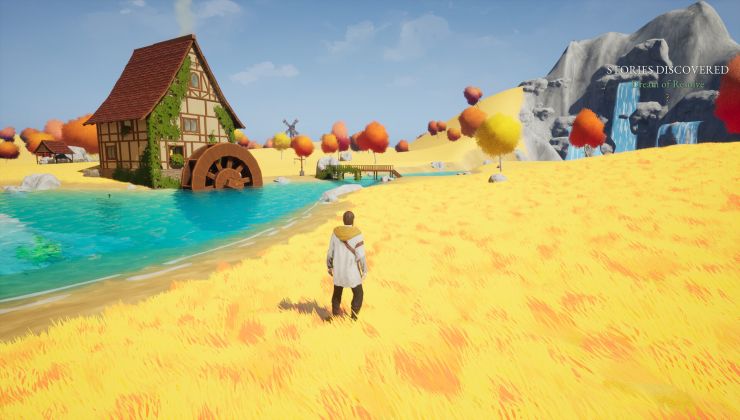
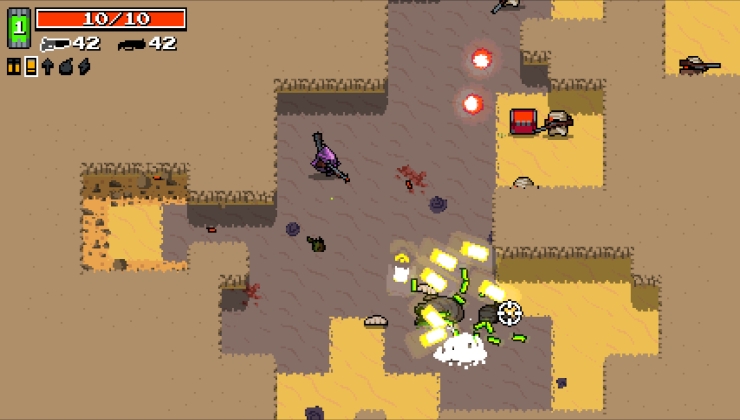





 How to setup OpenMW for modern Morrowind on Linux / SteamOS and Steam Deck
How to setup OpenMW for modern Morrowind on Linux / SteamOS and Steam Deck How to install Hollow Knight: Silksong mods on Linux, SteamOS and Steam Deck
How to install Hollow Knight: Silksong mods on Linux, SteamOS and Steam Deck